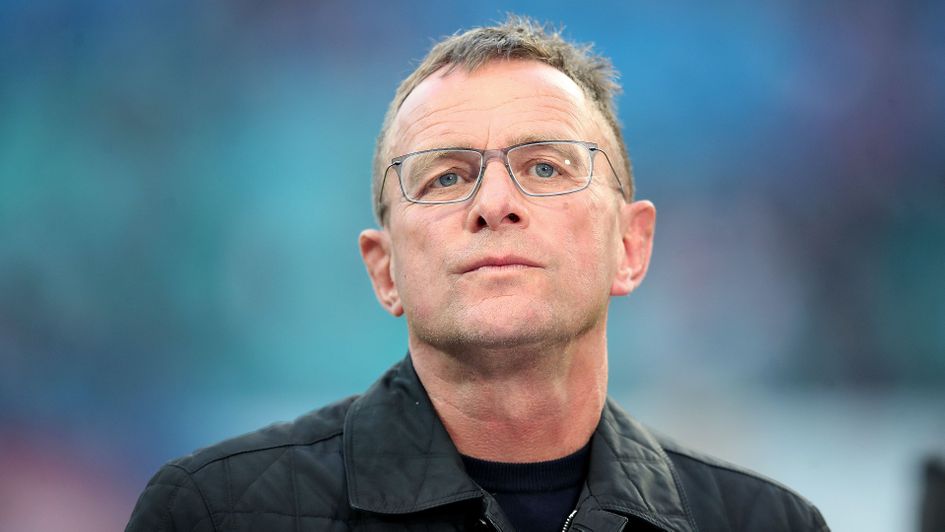For a club constantly seeking the new messiah, pinning their hopes on the cult of the manager and expecting miracles from the man in the dugout, Manchester United fans ought to be excited by the prospect of Ralf Rangnick.
Nobody in the modern game can replicate what Sir Alex Ferguson did, and United – rotting from the head through years of mismanagement – are unlikely to succeed until they realise a serious structure needs to be put in place.
What makes Rangnick such a savvy appointment, then, is that the German will look to embed himself in the club and change the culture from top to bottom.
Rangnick is an innovator in multiple aspects of the game.
He is the godfather of German football, the man responsible for gegenpressing and sharp vertical attacks, but he is also perhaps the most impressive director of football we have seen this century.
Rangnick needs time to rebuild
A genius on two fronts, really, and Man Utd need innovation – need world-class input - in as many different places as they can get it.
He single-handedly built the Red Bull empire, implementing a tactical philosophy that has seen RB Leipzig rise towards the summit of German football and the youth strategy that has seen RB Salzburg produce talents like Erling Haaland.
Rangnick even briefly managed Leipzig into the Champions League semi-finals, showing he is capable of smoothly transitioning from director to manager.
This is the kind of building job required at Old Trafford.
Rangnick also took Hoffenheim up from the third tier to title contenders, again straddling two roles, while additionally laying the foundations over two stints at Stuttgart that ultimately led to their 2006/07 Bundesliga triumph.
In short, if the United board listen to him, Rangnick can create a structure that aligns scouting, training, tactics, and culture into something befitting a modern super-club.
What is Rangnick's style of play?
The 63-year-old was among the first people to bring pressing into German football – and he did it in the most extreme way.
His teams press furiously and constantly, using territorial dominance and a fearless approach to defending to win the ball in dangerous areas and surge quickly into the penalty area.
He has had a direct influence on the likes of Julien Nagelsmann, Thomas Tuchel, and Jurgen Klopp, all of whom learnt their gegenpressing ways from Rangnick – and learnt that it is all about detail.
The United players won’t just be expected to become fit and hard-working, they will also need to learn precise configurations of how to press together, moving and passing in clear rhythms to mechanise their style of football.
When in possession, a Rangnick team is constantly looking to play vertically, finding the line-splitting pass and changing positions in sync to fall into the gaps between the opposition formation.
Emphasis is put on brave attacking football and committing many bodies forward, with frequent midfield runners going beyond the striker.
How will Sancho fit in for Man Utd?
This might be initially difficult to coach mid-season, given how little time there will be to train, but, nevertheless, Rangnick has a squad ready to absorb his methods after years of vague outlines under Ole Gunnar Solskjaer.
The reputation the German brings, and the promise he will be around for a couple of years, suggests the squad will be ready for the revolution.
Jadon Sancho is the most obvious winner here.
His coaching at Borussia Dortmund was wholly inspired by Rangnick’s work, and as a hard-pressing forward with the pace to get in behind, Sancho, who has scored two in two since Solskjaer’s departure, should become a firm favourite in the new regime.
Donny van de Beek could now be key to Man Utd
Similarly, Donny van de Beek should get a fresh lease of life.
His desire to constantly play a forward pass, his superb passing range under pressure, and his frequent runs beyond the play make him the perfect Rangnick midfielder.
Fred, once wanted by Pep Guardiola to replace Fernandinho, is another potential star; he has the agility and forward-looking style to excel under some detailed guidance from the manager.
Of course, the biggest concern is Cristiano Ronaldo, whose unwillingness to press makes him a very poor fit for Rangnick. In fact, he is a symbol of all that is wrong with United’s scattergun corporate management; the kind of thinking that Rangnick will hope to stamp out.
The power struggle between these two could get interesting, especially with Marcus Rashford and Mason Greenwood – two pacey forwards – eager to learn.
Should Rangnick be sporting director?
There is a skeleton of a decent Rangnick team already in place, then, and that should ensure he achieves his six-month goal of a top-four finish.
Perhaps what is more interesting is what comes next for Rangnick, whose dubious ‘consultancy’ title does not guarantee he will command much control at the club.
Prior to Solskjaer, who was clearly a ‘yes’ man, United managers have struggled to assert themselves in a muddled boardroom that does not like to cede control to the person in the dugout.
The fact that Rangnick has not been promised a director position might be cause for concern; whom United pursue in the January window will give us a clue as to the club’s willingness to let Rangnick do his work.
That is, ultimately, a more meaningful power struggle than the one between Rangnick and Ronaldo, although the outcome of the latter is likely to inform our understanding of the former.
Ronaldo projects the image of United as they are now: a superstar with waning influence, concerned with image over substance.
Rangnick projects the image of what the club could and should be.
